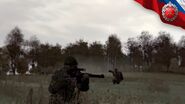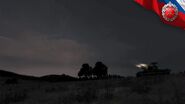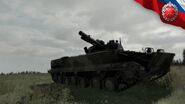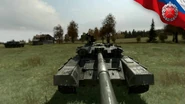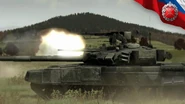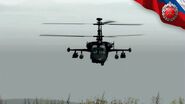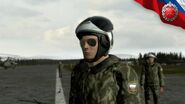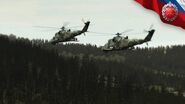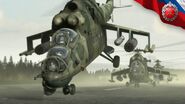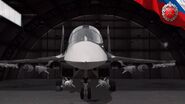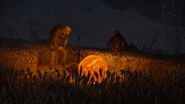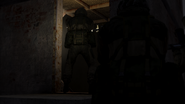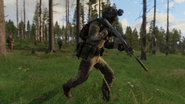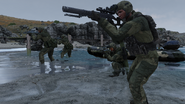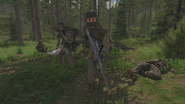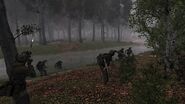(Replaced trailer with official version.) |
|||
| Line 149: | Line 149: | ||
== Video == |
== Video == |
||
<gallery> |
<gallery> |
||
| + | Arma 2 Faction Update No.5 - Russian Armed Forces |
||
| − | ArmA II PC Games Trailer - Russia Trailer |
||
</gallery> |
</gallery> |
||
Revision as of 15:01, 9 July 2020
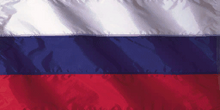
Russian Armed Forces flag
The Russian Armed Forces (alternately the Russian Ground Forces or RGF) are an OPFOR faction in ArmA 2.
They also make a minor appearance in ArmA 3 and are represented as the Russian Spetsnaz faction. They were added with the release of the Contact DLC.
Overview
| « | A broad expanse for dreams and for lives is opened to us by the coming years. Russian Federation Anthem
|
» |
Background
Established after the dissolution of the U.S.S.R. and the Soviet Armed Forces at the end of the Cold War, the Russian Armed Forces is its spiritual successor in all but name.
Technology-wise, the Russian military is almost on par with its BLUFOR counterparts. It remains as one of the most sophisticated armies amongst all other OPFOR factions.
ArmA 2

Insignia of the 454th
Russian forces operating in Chernarus and the rest of the Green Sea region consist predominately of units from the 454th Guards Motor-Rifle Regiment, with General Shagarov serving as its commander.
Some supporting units are also present alongside the 454th, primarily several armoured platoons from the 321st Tank Battalion and infantry from the 1st Company "Kazaki" ("The Cossacks"). However, they remain on standby at the border and are not deployed on front line duties.
ArmA 3

Insignia of the 223rd
Highly trained and versatile, Spetsnaz operatives from the 223rd Special Purpose Detachment have been deployed on covert, deep reconnaissance missions inside Livonia, a member state of NATO.
In light of increased tensions within the past decade, they have been tasked with infiltrating through the so-called "Andrzejów Gap" - locating and exploiting security weaknesses within NATO defences.
History

ArmA 2-era Russian Armed Forces emblem.
After being dismissed following unsuccessful negotiations with the Russian government, a powerful insurgent group called the Chernarussian Movement of the Red Star (ChDKZ) executes the prime minister of Chernarus, Alexander Baranov, in retaliation and announces the renaming of the nation as the "Chernarussian Socialistic Republic".
The Russian Federation urgently calls for a UN Security Council meeting in order to discuss authorising a Russian-led intervention in the region following the legitimate Chernarussian government's exile, as well as the formation of the insurgency group.
However, a bitter deadlock is reached in the Security Council meeting as Moscow protests against the deployment of U.S. forces into the region instead.
Events of Operation Harvest Red (2009)
| SPOILER ALERT | |||
|---|---|---|---|
NOTE: This section contains spoilers from ArmA 2's 'Operation Harvest Red' campaign.
Barely a week after ChDKZ forces are forced to withdraw to the northern parts of the country by U.S.-led forces, a bomb goes off at Red Square in Moscow which kills fifty and critically injures more than two hundred people. 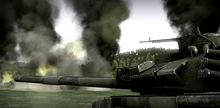 Russian forces step foot onto Chernarussian soil unopposed. The Chernarussian National Party are listed as the prime suspects behind the bombing by the Russian government, and are declared to be an extremist group while blaming the Americans for causing more instability in the region and encouraging the spread of terrorism to Russia. The USMC deployment in Chernarus is forced to be cut short following a Security Council meeting which authorises the deployment of Russian forces into the country instead. Russian troops quickly assume their positions as peacekeepers in the region following the American withdrawal. Albeit reluctant, the CDF are forced to co-operate with the Russian military and allow their forces to monitor their movements. Unbeknownst to both the Russian government and military, the bombing was actually conducted by rogue elements within the Spetsnaz sympathetic to the cause of the ChDKZ; more specifically a fanatical officer named "Karelin" who intended to use the ChDKZ leader, Gregori Lopotev, as a scapegoat in order to re-integrate the country into the Russian Federation. 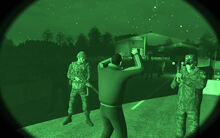 Lopotev is handed over to the Russian peacekeepers. Thanks to the efforts of Razor Team however, enough evidence is gathered and the conspiracy is eventually revealed to the Russian government after Lopotev himself is captured. Lopotev's handover is personally supervised by the leader of the Russian forces, General Shagarov, but they come under fire from Karelin's rogue team who attempt a last ditch rescue operation to save Lopotev. Karelin is eventually killed in the ensuing gun battle, and his identity is visually confirmed by another Russian officer at the scene. With overwhelming evidence of the Chedaki being responsible for the bombing, the mandate of their intervention expires and Russian forces withdraw from the country immediately. The UN Security Council unconditionally agrees to allow for U.S. forces to redeploy into the country once more. |
Post-Operation Harvest Red
With Lopotev in their custody and the Chernarussian Civil War at an end, relations between the Russian and U.S. government returned to a status quo. Both sides denied any involvement in the fighting, with the Kremlin blaming the deaths of Russian servicemen in the conflict on "mistakes" caused by the military's low-level commanders.
Events of Operation Black Gauntlet (2013)
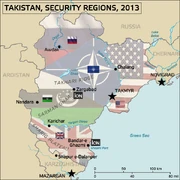
Russian forces maintain control over the northern regions of Takistan.
Following the aftermath of the UN-mandated and U.S.-led invasion of Takistan, NATO forces in the region (as well as the British Army) begin to gradually pullout from the country. Bitter in-fighting between the New Takistani Army (NTA) and various other tribal groups in the region, no longer unconditionally loyal to the West, as well as the NATO withdrawal, cause the country to slowly spiral into chaos.
In the midst of this power struggle between the two factions, the Russian military seized large swathes of northern Takistan under the pretence of stabilising the country. Though their involvement is not fully elaborated on, they remained in static positions and mostly refused to assist either side.
Events of First Contact (2039)
By the late 2030s, the Russian Federation has become the focal point of a power struggle between two competing groups; a decaying NATO alliance fracturing from within, and the ever-expanding CSAT coalition led by the People's Republic of China.
| « | This is an age of radical change. We see the European Union crumbling, America's economy failing, the old order of things being swept away. We have no interest in reigniting Cold War tensions. Rather, we are searching out opportunities to redistribute the heavy responsibility, now resting on our shoulders. President Nika Grekova
|
» |
In the two decades that have followed the Chernarussian Civil War, Russia's economy has skyrocketed to levels not seen since the 1960s. An oil crisis in 2016 has forced the majority of Europe - particularly Eastern European countries, to rely solely on Russia for energy resources. This boost has allowed the military to revive numerous scrapped acquisition programmes; the T-100 being one such prominent example, along with the mass production of once considered cost-unfeasible platforms like the Angara tank.
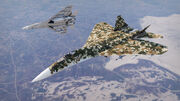
The Shikra, a fifth-generation stealth fighter jointly developed by Russian and CSAT companies.
Since its formation, Russia has also held an amicable relationship with CSAT on numerous initiatives. Russian arms manufacturers often work in tandem with their Asian and Middle Eastern partners to co-develop new technologies and equipment.
Sharing a common geopolitical goal of stopping Western subversion from intruding into their respective spheres of influence, Russian soldiers often participate in joint exercises with their counterparts in the Far East. The capital, Moscow, is regularly selected as a host city for CSAT members and their partners for annual summits, the latest of which was held in 2035.
Despite this mutually beneficial relationship, neither the Kremlin nor the Armed Forces' high command have been eager to fully integrate into CSAT. Weary of the unequal treatment its former subject, the Republic of Belarus, has faced from the coalition following its accession, the Russian Federation is not in a hurry to place itself under the yoke of China.
| « | Let's not forget how our Western friends reneged on promises made before the Warsaw Pact's dissolution. NATO gave us assurances once. The German border was a line in the sand. And yet that line has crept slowly eastwards. An arc of instability has arisen from the Green Sea to the Middle East. There are even US soldiers, conducting war games along our borders. Foreign Minister Poda Makarovich, commenting on his government's official opinion over CSAT's negative reputation in recent years following the "Apex Protocol Papers"
|
» |
However, that may soon change with the latest announcement from the coalition involving an enticing deal that would greatly bolster Russia's standing and influence on global affairs.
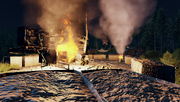
Livonian SAM battery set ablaze, supposedly by Russian special operations.
Furthermore in a pitiful attempt to cling onto its collapsing hegemony, the U.S. has arrogantly denied requests from the Kremlin for all NATO military exercises along its borders with Livonia to be halted.
The upstart Livonians and their Western allies have long been a hindrance, obstructing the airspace into the Kaliningrad Oblast, and restricting the military's ability to resupply its Baltic Fleet bases.
In spite of this, leaders from NATO states have continued to throw unfair accusations against Russia for conducting incursions and airspace violations across the border into Livonia, along the so-called "Andrzejów Gap" region.
| « | NATO sabre-rattling is counterproductive. The world is already on a precipice. A return to bilateral Cold War-era thinking could be disastrous for everyone. If the US continues to ignore the new world order, and insists on creating enemies where there are none, they run the risk of making their fears a reality. FM Makarovich
|
» |
Provoked by the constant disrespect and contempt that NATO have displayed towards Russian interests, the time for its entry into CSAT may finally be here after nearly two decades of geopolitical vacillation.
Only time will tell if the deal comes to a realisation...
Equipment
ArmA 2
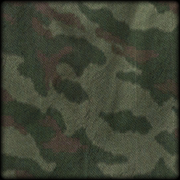
Flora camouflage pattern used by Russian infantry (ArmA 2)
Russian forces use a mixture of tried-and-true Soviet-era gear to the latest in modern Russian-made hardware. Most conscripts wear 6B3 body armour vests as well as the 6B27 ballistic helmet.
Their combat uniforms and all other gear are always camouflaged in the Flora pattern that helps to easily blend them into the dense woodland forests of Chernarus.
Spetsnaz forces and MVD internal troops on the other hand, wear multi-environment Gorka suits for use in long distance patrols deep in the low mountain ranges and heavily built-up towns/villages scattered throughout the country.
ArmA 3
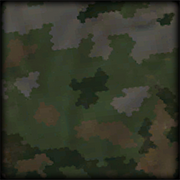
Taiga Hexacam pattern used by Spetsnaz operatives (ArmA 3)
The operatives of the 223rd wear a combination of lightly-armoured Granit mountain suits and Avenger ballistic helmets for headgear; the latter being an early predecessor of CSAT's Assassin series of helmets.
Both sets of gear are usually camouflaged in the Russian military's unique version of CSAT's Hexacam camouflage scheme, a taiga-style pattern ideal for Livonia's woodland environments.
Unlike their CSAT compatriots, Spetsnaz operatives eschew CSAT's heavier combat fatigues in favour of Granit suits, which are more suited to traversing the cold and isolated Livonian countryside. Their Kipchak load bearing rigs are designed with expanded storage capacity in mind, but do not provide any protection from small arms fire.
Given the covert nature of their operations, the 223rd do not utilise any heavy ground vehicles and rely exclusively on Mi-48 gunships for transport and To-201 stealth fighters for close air support - on the rare occasion that their assistance is required.
Arsenal
Gallery
ArmA 2
ArmA 3
Video
External links
See also
- CSAT
- Soviet Union (Predecessor, ArmA: CWA)
- United States Marine Corps (BLUFOR counterpart, ArmA 2)
- Livonian Defense Force (Independent counterpart, ArmA 3: Contact)
| Factions - REDFOR (ArmA 2) | |
|---|---|
| Russian Armed Forces • ChDKZ • Takistani Army • Takistani Militia | |
| Operation Arrowhead | |
| Factions - REDFOR (ArmA 3) | |
|---|---|
| CSAT • Gendarmerie • Russian Spetsnaz • Viper | |
| Apex DLC | Contact DLC | |






